Officer Denise Bruce-Jones Shares Her Inspirational Story After Bravely Fighting Back From Being Shot
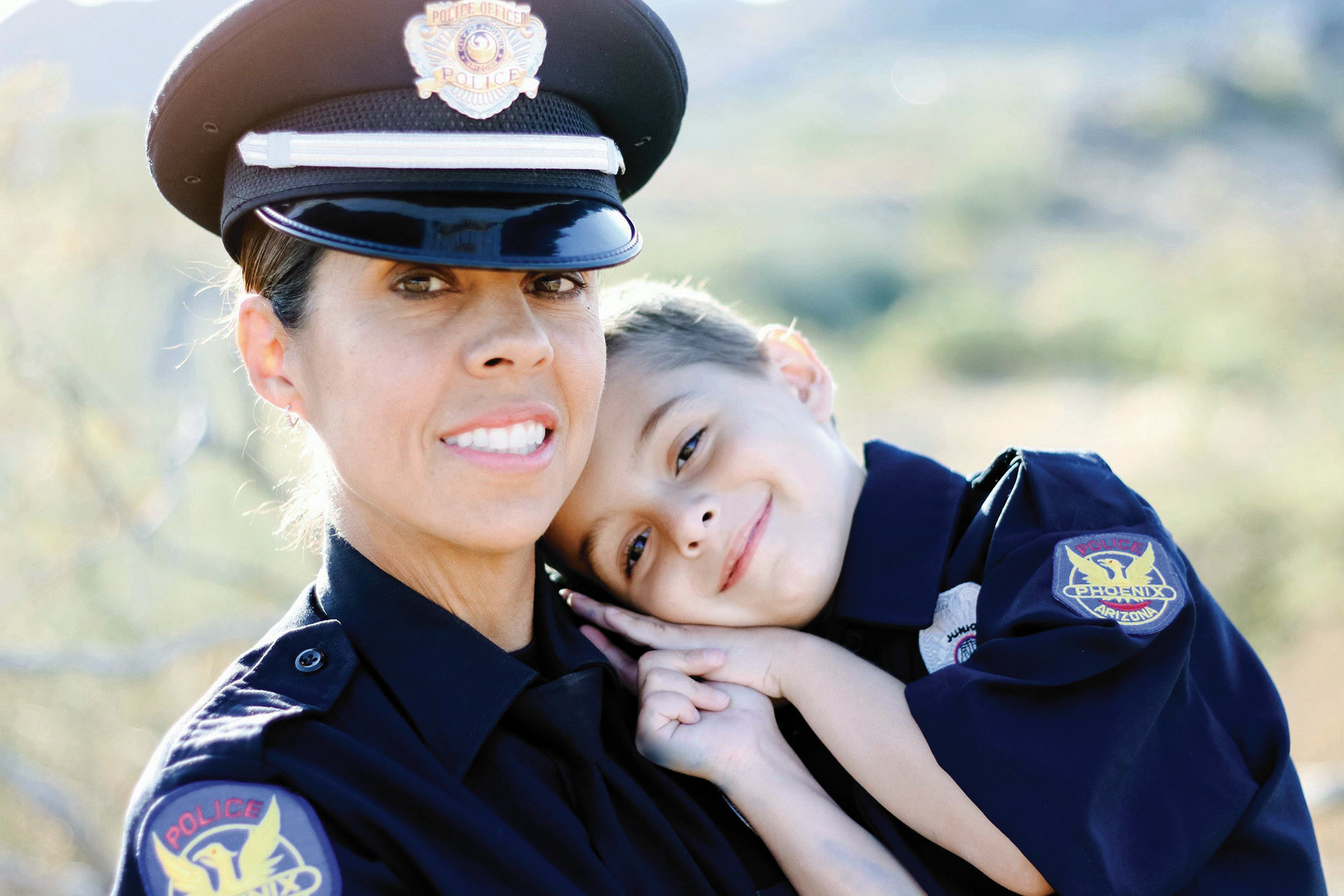 PLEA Secretary John Maxwell had the opportunity to sit down and talk to Denise Bruce-Jones, who was shot in the line of duty on April 14, 2022, at 10:30 a.m. while investigating a call for service involving an individual who was suicidal. She was shot in the abdomen, and she is still recovering today from her injuries. She is glad to be here with her friends and family. This is her story. Note: Some of the details could not be discussed due to ongoing criminal litigation.
PLEA Secretary John Maxwell had the opportunity to sit down and talk to Denise Bruce-Jones, who was shot in the line of duty on April 14, 2022, at 10:30 a.m. while investigating a call for service involving an individual who was suicidal. She was shot in the abdomen, and she is still recovering today from her injuries. She is glad to be here with her friends and family. This is her story. Note: Some of the details could not be discussed due to ongoing criminal litigation.
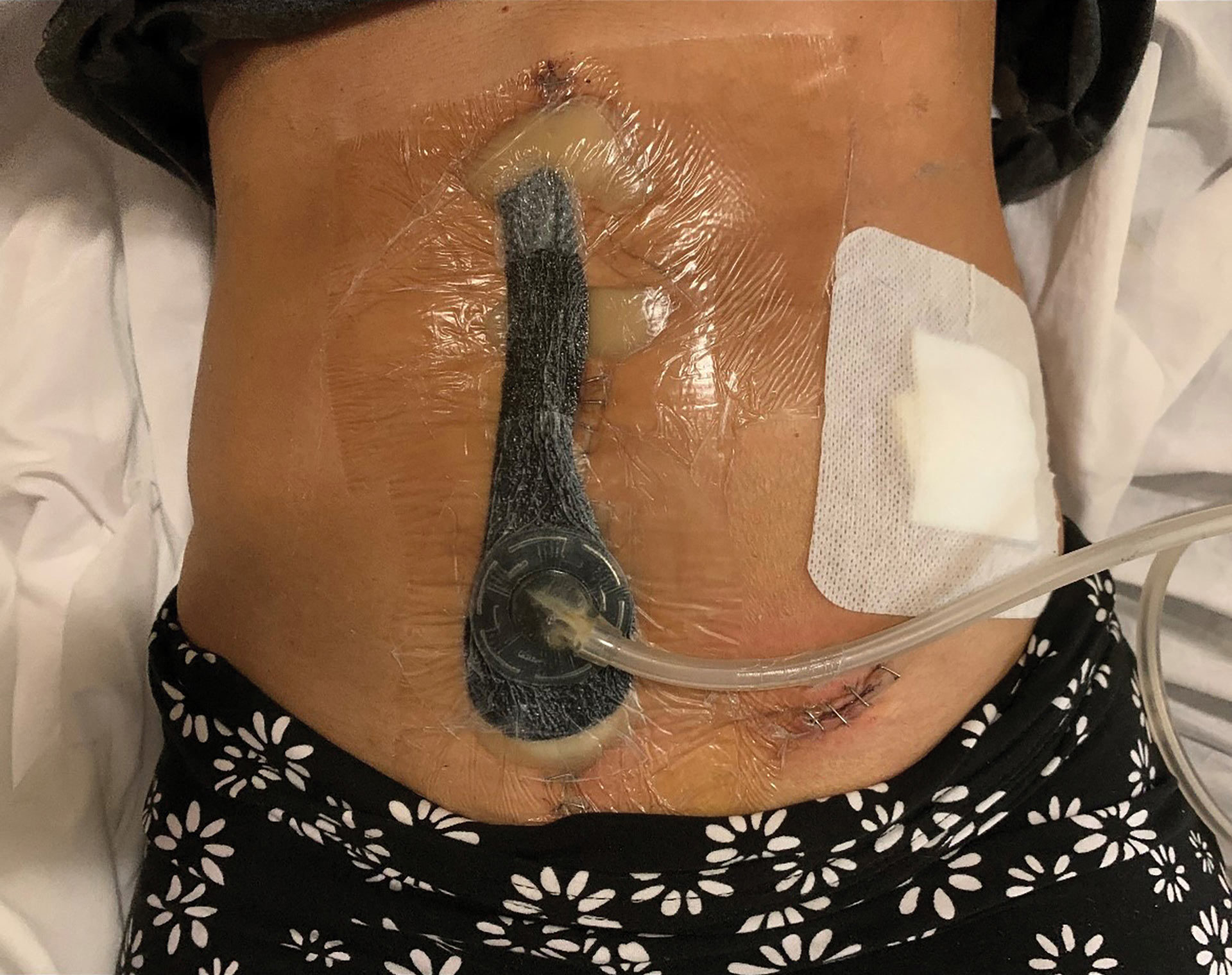 Denise’s Story
Denise’s Story
On April 14, 2022, Denise Bruce-Jones was working a patrol shift when she responded to an emergency radio call (hot call) of a suicidal subject. She and Officer Mazin Toma were attempting to get a Crisis Intervention Team (CIT) officer to respond to the call with them. Denise arrived on the scene first at a gas station near Cave Creek Road and Beardsley, several blocks from the caller’s residence. She spoke with the female subject, who had placed the call to 9-1-1 about her boyfriend being suicidal.
Officer Toma arrived shortly after at the same location as Denise was contacting the female. Officer Toma walked away to speak on the radio to coordinate additional resources. The female said that she and her boyfriend had been fighting for the last couple of days, and he shot a gun into the ceiling of their home the day before, but she never called the police to report the incident. Denise recognized her from prior calls for service. The female also said that she ended up sleeping in her car that night on the property. She was woken up by her boyfriend knocking on the window, and the argument started again. She told him that she was leaving him, and he responded that he was going to kill himself.
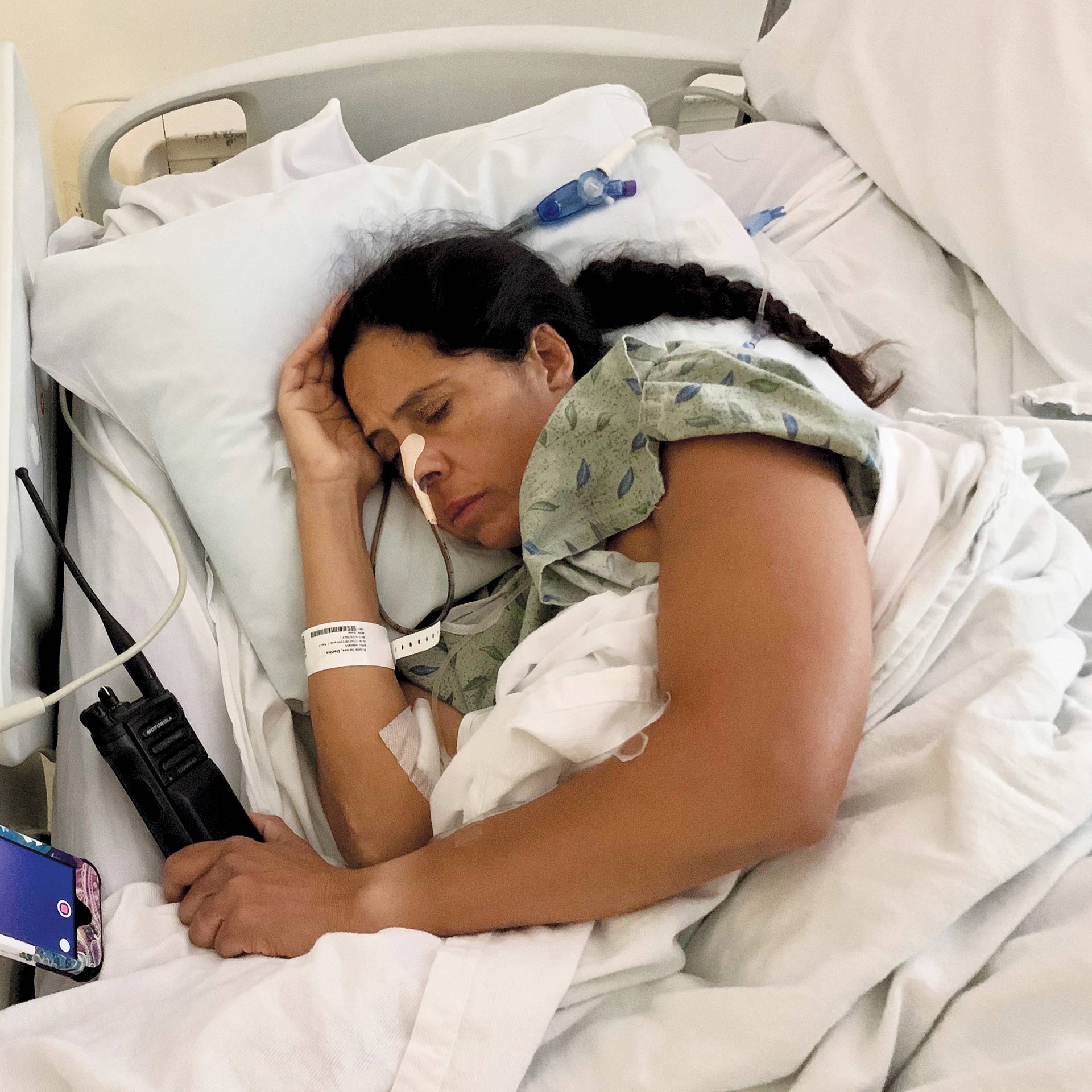 The female drove away, but he had her phone. She then drove to Cave Creek Road and Beardsley to call the police. The female and Denise went inside the gas station and got her phone number because she didn’t know the number but used to work there, so they went inside to ask the on-duty clerk for the number. They exited the store into the parking lot, and Denise was going to give the phone number to Officer Toma for a means of communication at the residence.
The female drove away, but he had her phone. She then drove to Cave Creek Road and Beardsley to call the police. The female and Denise went inside the gas station and got her phone number because she didn’t know the number but used to work there, so they went inside to ask the on-duty clerk for the number. They exited the store into the parking lot, and Denise was going to give the phone number to Officer Toma for a means of communication at the residence.
The female then told Denise, “There he is.” Denise immediately noticed a motorcycle on Beardsley. Remembering that he normally rides a motorcycle, she was focused on the motorcycle when she asked the female, “on the motorcycle?” The female said, “No, in the Prius.” Denise was scanning for the car when suddenly a Prius came into the parking lot quickly. Denise saw the male driving, and his hands appeared in the air as he was animated talking to himself. The passenger-side window was down only a few inches. Denise yelled to Officer Toma, “There he is!”
Quickly, the passenger-side window of the Prius rolled down as she was in the middle of the gas station. When the vehicle stopped, Denise remembers immediately feeling a burning pain in her left hip. This is when time slowed down and she realized a muzzle flash had preceded the burning and now the barrel of a gun, barely visible, was pointed at her. “Fuck he just shot me,” she realized.
Her legs buckled, and she was now lying on the ground on her left side. She said that she saw Officer Toma quickly react by drawing his gun and returning fire, but she did not hear any gunfire, though she did not lose consciousness. She couldn’t physically roll over and draw her gun in time and immediately went into survival mode. Officer Toma then came over to her and started to pull on her to get her to safety. Her leg was burning with excruciating pain, and her left leg was shaking, and she couldn’t stop it.
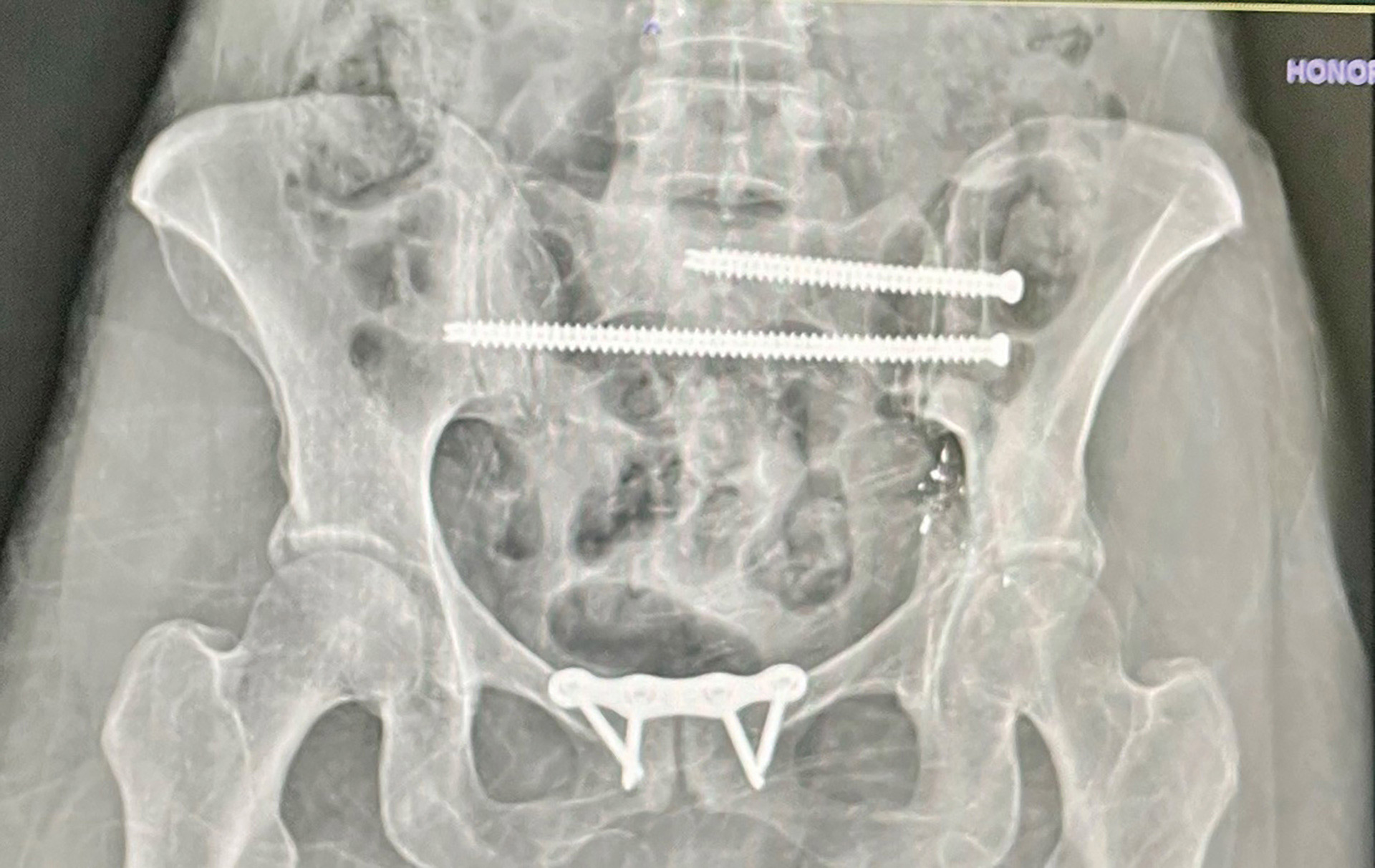 Staying Calm in the Face of Adversity
Staying Calm in the Face of Adversity
She tried to put out the 999 (officer down) over the radio, but it didn’t go out. Officer Toma was able to put out on the radio a 999. While lying on the ground in the parking lot, multiple police units started to arrive on the scene. She knew she had to do her best to stay calm and just wait for the fire department. Most of her focus was on her breathing, which helped her remain calm. Denise had just got a new ballistic vest and remembered it feeling stiff and tight, making her feel claustrophobic. She was told to keep her vest on in case it was providing compression on any gunshot wounds.
The fire department arrived, and they immediately put Denise on a stretcher and loaded her into the ambulance (load and go). Fire removed her vest along with her duty belt to treat her injury. She was placed onto her left side so her body weight could keep pressure on the wound near her left hip. She vividly remembers her left leg kept shaking, and she could not make it stop. Sergeant Linda Miller was also in the back of the ambulance, applying pressure to the wound with gauze. Fire told Sergeant Miller, “If she isn’t screaming, then you’re not pushing hard enough.” That moment will always remain in her memory.
Fire said that her blood pressure was 120/70 and her heart rate 61 beats per minute. Denise believes she was able to remain so calm because she’s in good shape and knew that she was going to survive. Her memory of most of the ride to the hospital is vague. They arrived at the John C. Lincoln Medical Center emergency room and Fire wheeled her inside quickly. The last thing that she remembers was going into the operating room and the nurse asking “pre-op” questions before she was put under. She then fell asleep. Incidentally, Denise candidly remarked, “You’d never expect to get ambushed at 10:30 in the morning in north Phoenix.”
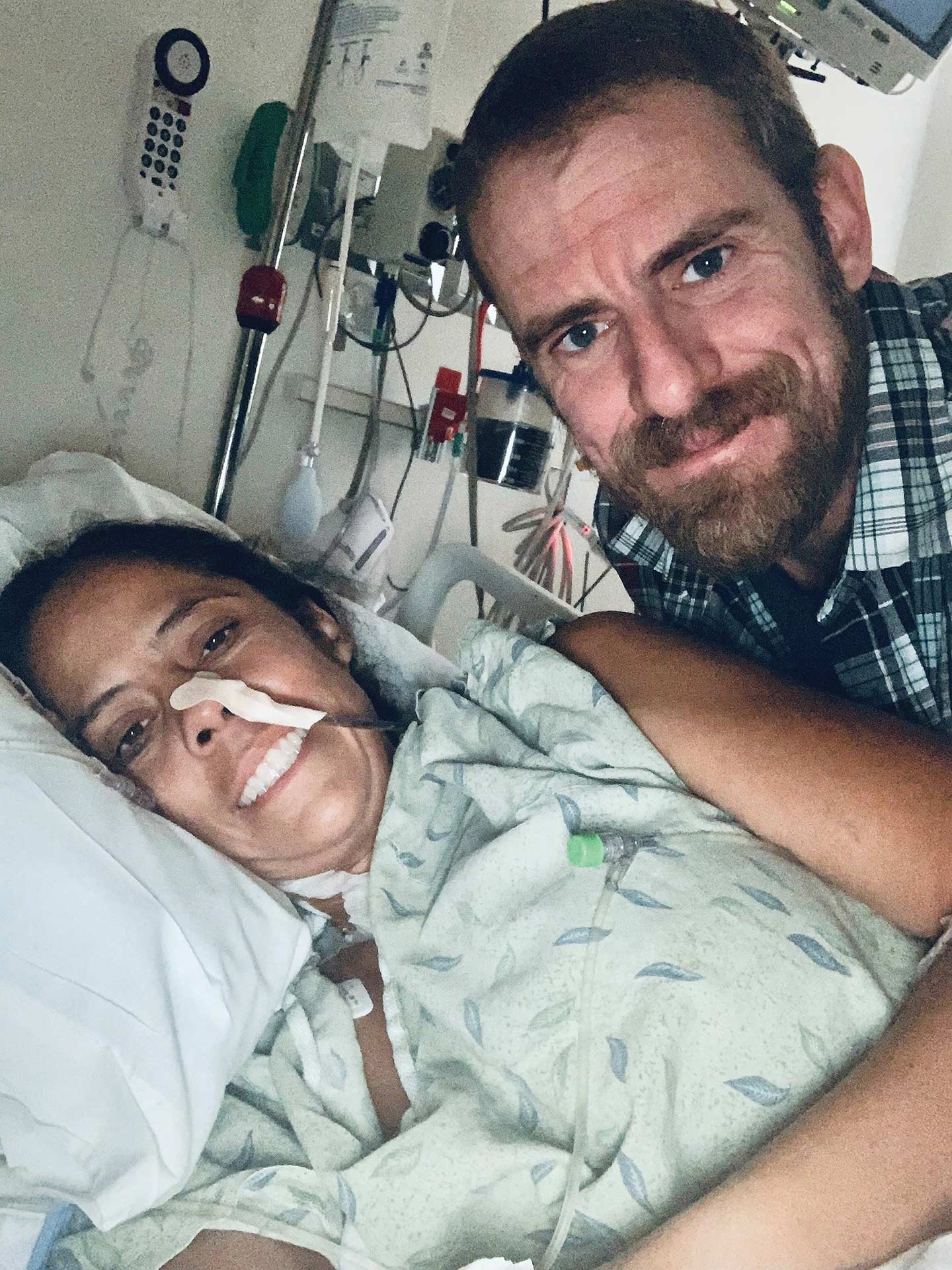 Waking Up After Surgery
Waking Up After Surgery
The surgery was complete, and Denise was taken up to ICU. When she awoke, her husband, Chris, was by her side. The doctor later entered the room and said that they had performed an exploratory laparotomy, which consisted of them opening up her abdomen in order to dissect her bowel. This was done to stop the bleeding and to find the bullet and any fragments. They said that she had a fractured acetabulum (hip socket). Because of the abdominal surgery, she could not eat or drink anything for five days. “That was terrible — my throat was so dry, and it felt like sandpaper swallowing,” Denise remembers.
Her abdominal core hurt so bad every time she had to move. All she could do was lie there trying not to laugh, cry or even cough so it didn’t hurt. She was cleared to start physical therapy the next day and remembers thinking back to how painful it was just to sit up. Therapy was very challenging because she was hopping on her right leg since she wasn’t allowed to use her left leg. The right leg needed to take all the load-bearing weight while her pelvis healed.
The surgery left her with a 10-inch incision opening down her abdomen, which was closed with staples. It extended from the bottom of her sternum to the waistline. While in the hospital, Chris was talking to their young son, Kemper, on Facetime, and he turned the phone around to Denise lying in bed.
Kemper asked her, “What is really going on?” Initially, they had told him that she was injured at work and was in the hospital. Denise said that despite his young age, “He is a very smart kid” and began to ask a lot of questions. She would have to tell him the truth, and so she explained that she was shot by a bad guy, and that’s why she was in the hospital with tubes coming out of her. That was an emotional moment for Denise having to tell her child that she was shot, but she knew that seeing her on Facetime reassured him that she was alive and going to be OK. Kemper did, however, became upset knowing that his mother was not going to be home for a while — they have a very close relationship.
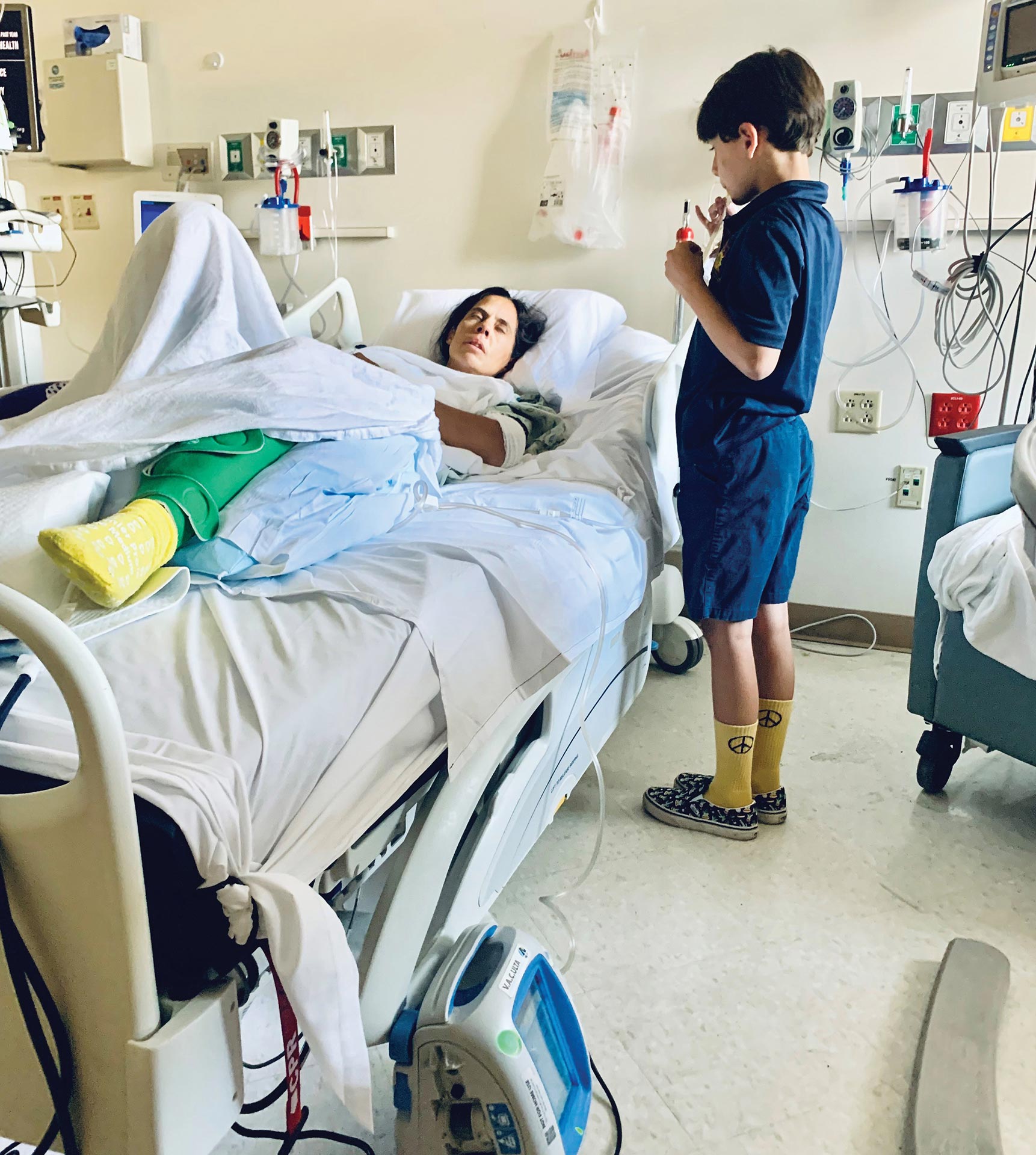 The Road to Recovery
The Road to Recovery
Denise would stay in the ICU at the hospital for another week until being discharged to a medical rehabilitation facility. During discharge and medical transport to the next facility, she was provided with a “police escort” by her close co-workers. She remained in the rehab facility for two more weeks.
The struggle of healing continued in rehab, and she developed an infection in the gunshot wound site that had to be treated. This consisted of draining the fluid and cleaning the wound. The day came for her to be discharged from rehab, and to her surprise, she was greeted by police officers and rehab staff members cheering as she was pushed out of the building in a wheelchair. She was overcome with emotion and started to cry. “Thank you to everyone who was there to support me,” she says.
She started going to physical therapy soon after being released. “It was difficult going from a wheelchair to a walker and then to a cane,” Denise says.
In June, her doctor said that she had movement in her pelvic bones. She could feel the bones moving in her pelvis while lying down and turning over. This required another surgery called open reduction and internal fixation (ORIF). Her second surgery was in September, adding two screws and a metal plate to stabilize the two pelvic bones together so they could heal correctly.
Today, she is now fully weight-bearing on her left leg, and since January of this year, she has been walking without assistance. She told me that she still has some lasting nerve issues in her leg. There is some lack of movement in her quadricep muscle, along with sensory issues of numbness, tingling and temperature sensation. The most frustrating struggle right now is not being able to climb stairs as well as upward and downward flexion of the left leg. She may require another surgery to correct the nerve issue later this year.
The incident was two days before her husband, Chris’ birthday and just before Easter. Denise became very emotional talking about what was the hardest thing to overcome during her recovery. If you know Denise, she is an athlete and has competed in seven Ironman races. She finds that running and training are therapeutic. “Not being able to run is really hard for me,” Denise says. Her plan when she retires was to go back to training hard for Ironman and compete in races.
She is happy to be alive today and grateful to Officer Toma, who she credits for saving her life. She is further indebted to everyone who helped locate the suspect (who was ultimately arrested). “Everyone who called, visited, texted and were there for me, thank you!” Denise says.
Denise believes it’s important to stay in shape and focus on your health. She credits her survival and recovery, both mentally and physically, to being in shape. “I’m not angry and will not dwell on what happened because it is not productive.” She has now found other ways to exercise to stay healthy while recovering, like swimming (even though this was her least favorite discipline in the triathlon).
Denise’s husband Chris also works for the Phoenix Police Department. I met with Chris separately to talk about what happened.
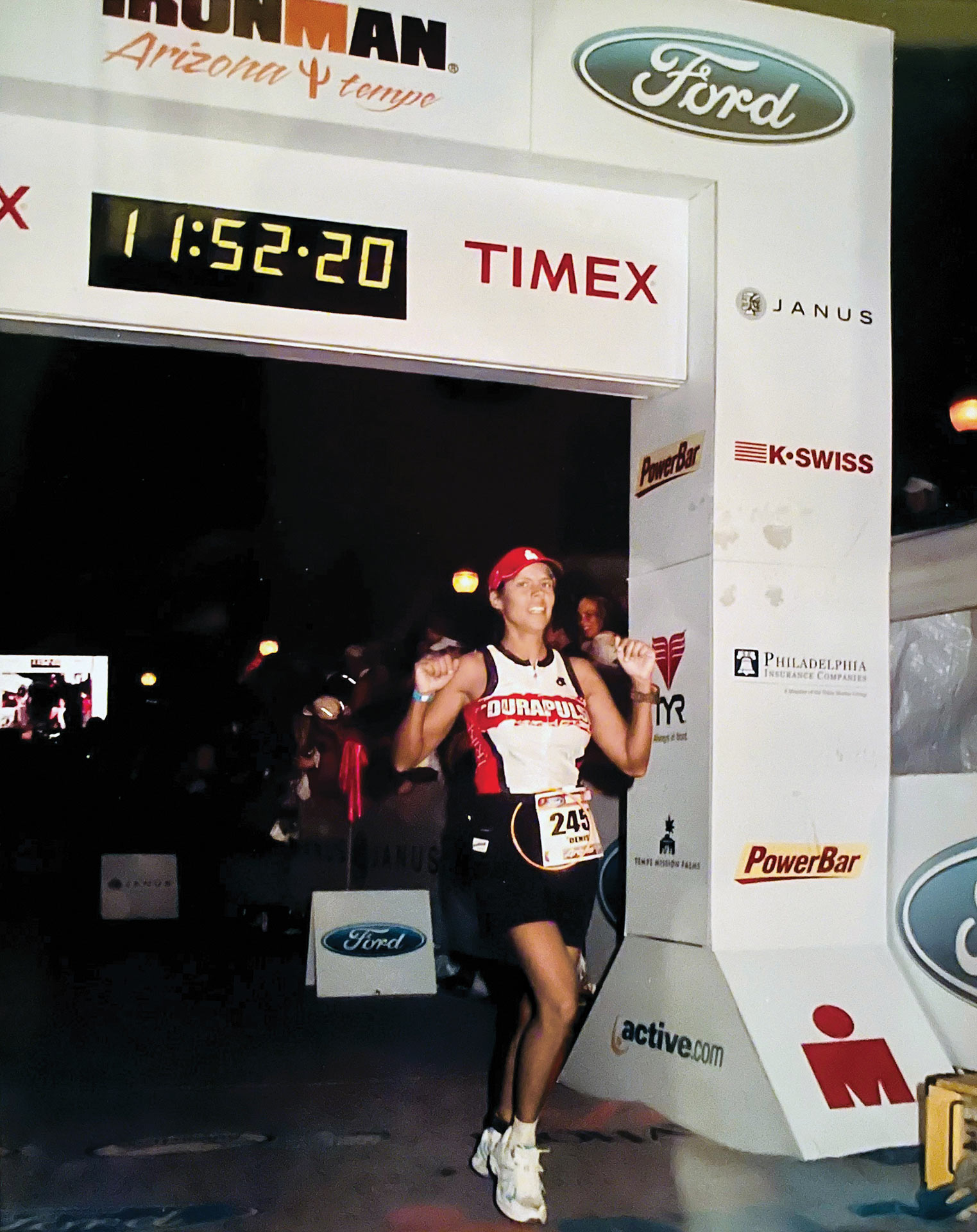 Chris’ Account
Chris’ Account
On the day of the incident, Chris was sleeping because he was on the night shift. His phone started to get text “dings” and phone calls. Being so tired, he finally looked and answered one of the calls. One of the messages he received was about a female officer being shot, and he recalls “putting two and two together” that it was, in fact, Denise. He answered the next phone call, and that person advised him that Denise was involved and that he needed to get to the hospital immediately.
“What Am I Going to Tell Our Son?”
Chris initially paused for a moment, thinking “What am I going to tell Kemper about his mother being dead?” He answered another telephone call that put him at ease — “Denise is alive.” Chris quickly started to notify Denise’s family to help make arrangements to watch Kemper. Chris drove himself to the hospital, and when he arrived, he said it was so comforting to see familiar faces from PLEA and numerous other co-workers who were there for support. The hospital staff briefed him on Denise’s condition. He was told that she was shot in the waist and the hip, requiring them to take her to surgery right away.
Denise got out of surgery, and Chris was waiting for her upstairs in the ICU room. While Denise was not awake, Chris was trying to catch up with the incoming text messages and letting everyone know that she was going to be OK. It was a nice distraction to keep his mind busy, with Denise’s phone in one hand and his in the other hand, giving everyone updates on her status.
On the fifth day of Denise’s recovery in the hospital, she asked Chris for a cup of water, and he responded in his typical joking fashion, “What’s wrong with your legs?” Even though it hurt to laugh, Denise smiled just knowing things hadn’t changed much. He then got up and returned with the water.
Chris is very thankful for the police department taking care of their family, and they even assigned Chris to home to help take care of Denise.
There was a multiagency, statewide manhunt, which ended after the suspect was taken into custody days later and booked into jail.
